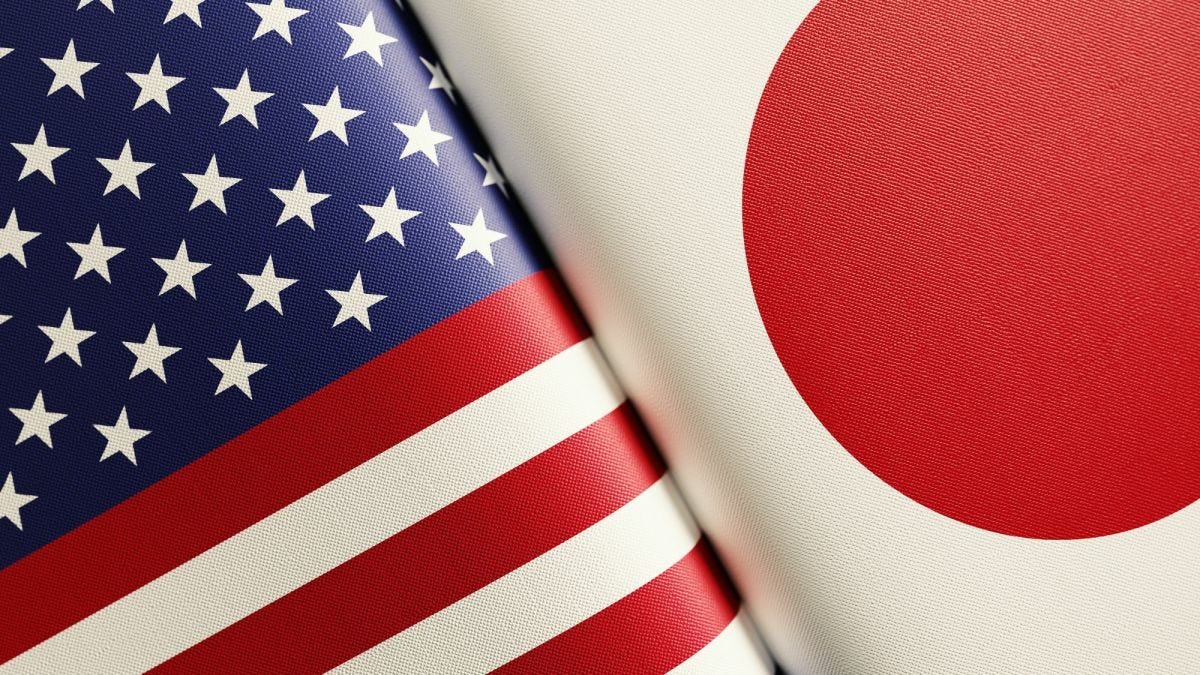We see a nation straining under pressure it did not choose — cornered by a man who mistakes extortion for diplomacy and domination for strength.
We see the silence after a round of negotiations that brought no real breakthrough. We see President Trump grinning in front of cameras, claiming “big progress” while offering nothing but disruption. And we see Japanese officials — calm, dignified, deeply aware — warning that this won’t be easy.
Prime Minister Shigeru Ishiba said it plainly: “This will not be an easy negotiation.” He was not exaggerating. Behind closed doors, Japan’s lead negotiator called Trump’s tariffs “extremely regrettable.” That is diplomatic language for what many feel more bluntly: a betrayal.
THIS IS NOT DIPLOMACY. THIS IS THEATER.
Trump’s arrival at the negotiation table wasn’t planned. It wasn’t respectful. It was a staged ambush — a power play meant to intimidate, not collaborate. And while Japanese leaders maintained composure, Trump unleashed pressure: 25% tariffs on cars, another 24% threatened, frozen for now like a blade held to the throat.
Washington spins this as “progress.” But even American analysts, like Nina Maria Potts reporting from D.C., admit the truth: this isn’t a deal. This is a desperate attempt to avoid disaster. “A narrow escape from a devastating situation,” she said. And still, Trump dares to call it a win.
Meanwhile, he attacks the Federal Reserve. He berates Jerome Powell for not slashing interest rates fast enough. He treats economic stability like a hostage negotiation — and the world watches in disbelief.
DO JAPANESE CITIZENS KNOW WHAT’S HAPPENING IN THE U.S.?
Not really. Not yet. And that’s no accident.
The 50501 “Hands Off” protests, held around on April 5th and April 19th to oppose Trump’s authoritarian turn, barely registered in Japan. A few international segments aired. Some left-wing blogs and university sites noted them. On Japanese Twitter/X, there was a flicker of activity — but no national trend. No headlines. Not in Asahi, not in Yomiuri, not in Mainichi.
Right now, Japan is staring inward — rocked by a Finance Ministry scandal, inflation, youth unemployment, and a growing sense that something fundamental is breaking. And so, foreign protest movements, unless massive and unavoidable like the murder of George Floyd in 2020, are simply not getting coverage.
But that doesn’t mean people aren’t watching. Among students, activists, and researchers, there’s a quiet curiosity: what is happening in America? Why are people rising up?
And here, we must say what Noam Chomsky said plainly:
“He who controls the media, controls the mind.”
If the people of Japan haven’t seen the protests — it’s not because they didn’t happen. It’s because power decided they didn’t matter. Media silence is not a reflection of protest weakness. It is a symptom of how deeply those in power fear real resistance.
That silence must be broken.
TRUMP WILL FALL. BUT THE MEMORY MUST REMAIN.
Donald Trump will not rule forever. That’s a fact. But the damage he leaves behind — the economic scars, the diplomatic wounds, the erosion of trust — will take years to repair.
And yet, Japan is no stranger to storms. You have rebuilt from ashes before. You know what it means to stand tall when others expect collapse. Trump may twist the meaning of alliance, but Japan does not forget what true strength looks like: dignity, patience, perseverance.
Now is a moment of clarity.
Not just about who Trump is — but about who we are.
The myth of America as a perfect guardian of democracy has shattered. The illusion is gone. That’s not a tragedy. That’s a beginning.
YOU ARE NOT ALONE.
You may not have marched on April 5th or April 19th. But you are part of this moment. Not because of hashtags. Not because of headlines. But because of what you choose to remember.
Remember that the tariffs were not policy — they were punishment.
Remember that Trump did not negotiate — he threatened.
Remember that when the world needed steadiness, he offered chaos.
And remember this: silence is not neutrality. Silence is consent.
And most importantly: remember your own strength.
You are not pawns. You are not spectators. You are not hostages.
You are Japan.
And the world needs your voice — not whispered through diplomacy, but spoken boldly, in the streets, in classrooms, in conversations, in memory.
Trump will go.
But you will remain.
Standing.
Enduring.
Refusing to kneel.
This article was born from a request by one of our readers in Japan.
At Closer to the Edge, we don’t chase clicks — we chase truth. And we listen. Whether it’s a whisper from Tokyo or a shout from Tulsa, our readers help guide the stories we tell. You’re not just an audience — you’re co-conspirators in the fight against silence, corruption, and authoritarian theater.
To everyone supporting us — in Japan, in the U.S., and across the world — thank you. Your subscriptions, shares, and caffeinated encouragement fuel everything we do.
This post has been syndicated from Closer to the Edge, where it was published under this address.

